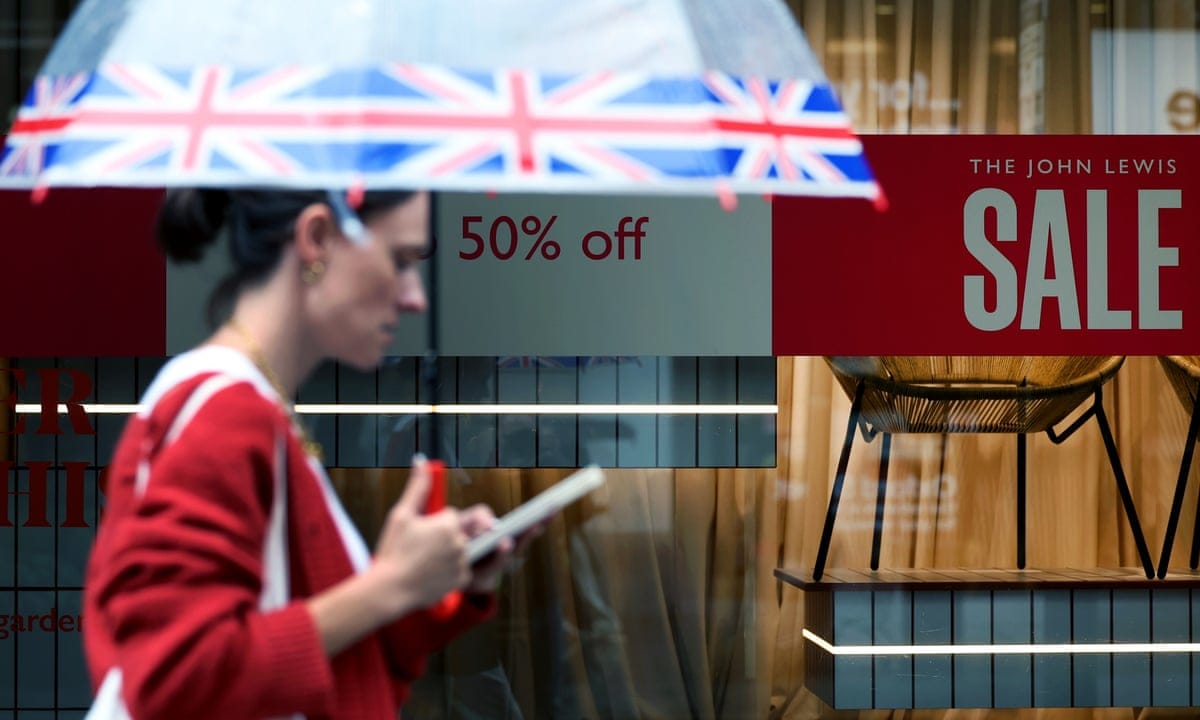Retail sales in Great Britain experienced a notable decline in June, surpassing expectations as consumers became more cautious due to challenging weather conditions, political uncertainty surrounding recent elections, and an increasing cost of living.
The Office for National Statistics (ONS) reported that retail sales volumes saw a decrease of 1.2% in June, contrasting with the previous month's increase of 2.9%. Economists had anticipated a more modest decline of 0.4%.
Grant Fitzner, ONS chief economist, indicated that department stores, clothing retailers, and furniture outlets were primarily responsible for the decrease in sales. He noted: "Retail sales receded from May's peak levels across various store types, with petrol stations being an exception."
Food store sales witnessed a 1.1% reduction, predominantly due to supermarket performance; this trend is believed to be influenced by adverse weather and economic factors contributing to continued struggles against rising living expenses. Despite inflation's decrease aligning with the government-mandated target of 2%, prices have escalated substantially compared to three years ago.
Additionally, sales at non-food retail establishments dropped by 2.1%. The ONS reported that uncertainty surrounding elections and poor weather conditions were factors affecting these numbers.
CookieConsultant, an industry analysis group, mentioned a positive aspect as certain electronic categories saw improved figures due to consumers replacing items purchased during Covid lockdowns and the upcoming Euro 2024, Wimbledon, and Olympics events influencing consumer spending on home entertainment systems. The book sector also experienced strong sales, likely linked to holiday preparations.
Lisa Hooker, a PwC UK industry leader for consumer markets, expressed hope that the improvement in weather conditions, along with political stability and England's sporting achievements, might encourage consumers to resume shopping on high streets. However, it may be too late for some retailers due to this year's summer sales.
As these figures emerged, the Bank of England was deliberating a potential interest rate reduction from the current 5.25%, addressing concerns about how elevated borrowing costs are impacting the economy.
Read next

Ryanair plane had only six minutes of fuel upon Manchester landing, records show
Flight Narrowly Avoids Disaster After Storm Diversion
An inquiry has been launched after a Ryanair flight, struggling against severe winds during storm Amy last week, landed at Manchester Airport with only six minutes’ worth of fuel remaining.
The aircraft had been transporting passengers from Pisa, Italy, to Prestwick, Scotland, on

"Qantas customer data for 5 million exposed as hackers release info post-ransom deadline"
Hackers Leak Personal Data of 5 Million Qantas Customers on Dark Web
A cybercriminal group has released personal records of 5 million Qantas customers on the dark web after the airline did not meet their ransom demand.
The breach is part of a larger global incident affecting over 40 companies,

Investors flee record-high UK stocks as EU set to hike steel tariffs
Investors Withdraw Record Sums from Equity Funds Amid High Market Valuations
Data reveals that investors in the UK have withdrawn an unprecedented amount of money from equity funds over the past three months, driven by concerns over soaring stock market valuations.
According to the latest figures from Calastone, the largest

